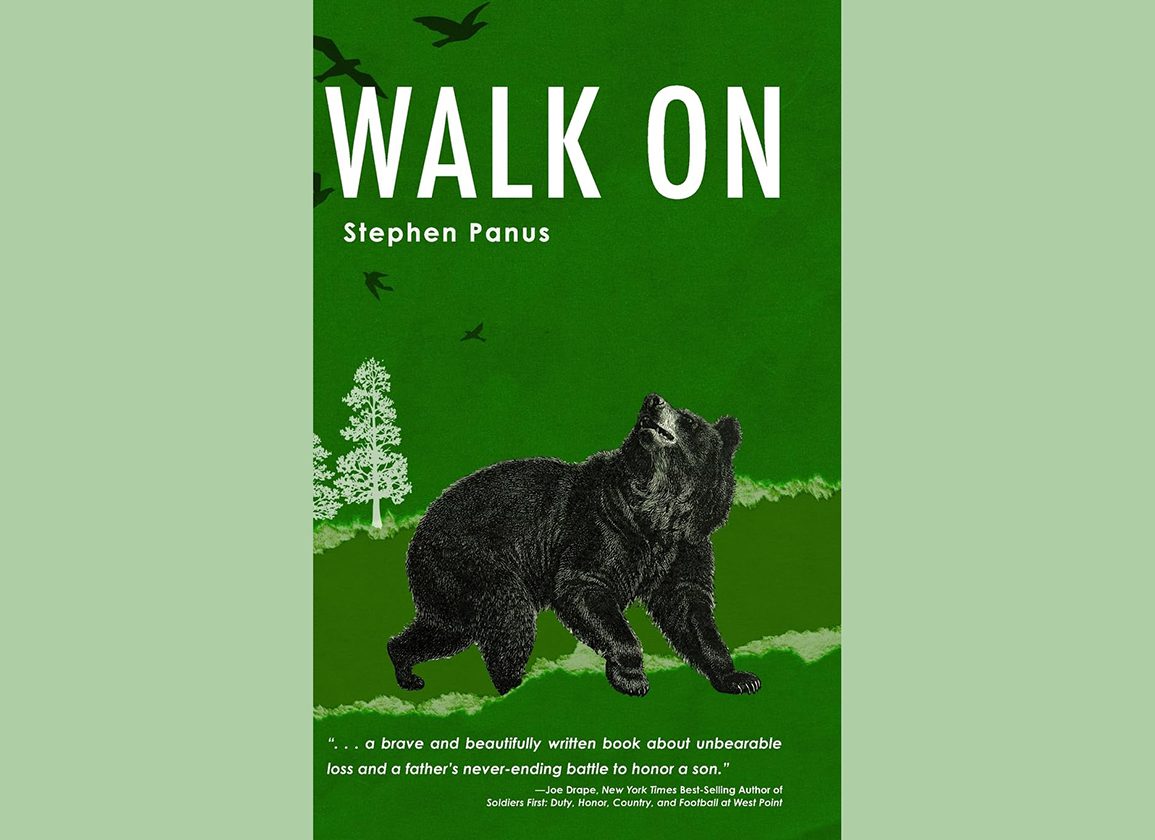By Bill Finley
Up until August 9, 2020, Stephen Panus was leading the type of life that many of us envy. He was the president of the Jockey Club's America's Best Racing brand, lived in an affluent community in Connecticut and, most importantly, had a close-knit family that he adored. There was his wife Kellie and sons Jake and Liam, both of whom were special in their unique ways.
“Jake was an immense, magnetic personality who lived his life uplifting others,” Panus writes in his recently released book “Walk On.”
It's not that Panus took his family and his life for granted. It's just that he knew nothing else and never thought that it could all be taken away from him with one phone call from a doctor informing him that Jake, then 16, had been killed in an automobile accident. Jake was not the driver but his girlfriend was and she was driving under the influence and drove the car off the road.
“There are losses that indelibly alter your life and upend how you view the universe,” he writes. “Losing Jake was just that for me and my family. It was soul-crushing.”
He no doubt wrote the book not just to memorialize Jake but in hopes that putting his thoughts down on paper would help ease the pain. The Panus family struggled mightily, but was determined to find a way out. Among their efforts was the creation of the Jake Panus Walk-on Football Endowed Scholarship, thus the name of the book. Father and son were diehard fans of the University of South Carolina football team and the scholarship is awarded each year to a “walk on” on the team, the players who rarely play and are not on scholarship. They also set up a scholarship fund for students living on the Pine Ridge Indian Reservation in Oglala County, South Dakota. In the summer of 2019, Jake participated in his first church youth group mission, which sent him to the Indian reservation. There he was struck by and moved by the poverty and the hopelessness that seemed pervasive among the younger members of the tribe.
Panus never pretends that, eventually, all might became right with his world or that things would ever again be the same as they were before that awful August day in 2020. But he refused to let the death of his child destroy him. While filled with grief, he also was filled with hope. That hope came from his desire to tackle his grief head on and keep doing so until he could find a way out.
“The exercise of chronicling my grief after losing and embarking on a migration from pain to purpose has been grueling yet necessary. As it turns out, I may have [finally] written myself out of the darkness of my circumstances and mustered the mettle to walk on in my life,” he writes toward the end of the book.
In life and from a young age, Jake Panus taught his parents, his brother and anyone he touched how to be kind, humble, honest, grateful, forgiving and hopeful. Following his death, it was if he had left a blueprint for all others to follow on how to have a rich and fulfilling life dedicated to bringing happiness to friends, family, even strangers. A blueprint of how to overcome your fears, how to keep pushing forward and how to live life to its fullest.
“Don't waste another hour or day allowing a life setback, challenge or obstacle to devour you,” Panus writes. “The ability and power source to conquer this resides within you.”
He knows that he will always grieve for his son and that there will always be a hole in his soul when it comes to Jake. But he never loses his fighting spirit or his quest to come out of this ordeal as undamaged as possible. Be authentic, have integrity and humility, be honest, learn to forgive and, most of all, be resilient.
“There it was in black and white,” Panus writes. “I had a choice. It really was that simple. I could move toward the light one small step at a time, or I could allow the darkness to further engulf my spirit and destroy me.”
Walk On was not meant to be a self-help book, but, for anyone who suffered through a terrible loss, that's exactly what it is. Panus's sadness is evident from the first page to the last but so is his determination to not let his grief destroy him. For anyone who has suffered a loss or is struggling through, what Panus writes is inspirational. He offers hope.
“Undoubtedly, we each need support in grief, but the trek to accepting or being able to fill the cracks of one's heart with light instead of pain is a solitary one,” he writes. “And what I have come to genuinely embrace is that the intensify of my grief over losing Jake unabashedly matched the intensity of my unconditional love for my son.”
Walk On is beautifully written and serves a wider purpose than consoling others who have lost a loved one. It is a book for everyone because it can teach us all how to be better people.
To contribute to the Jake Panus Walk-On Football Endowed Scholarship click here.
Not a subscriber? Click here to sign up for the daily PDF or alerts.






